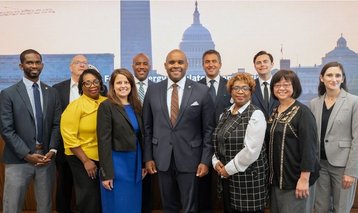Federal Energy Regulatory Commission (FERC) commissioner Willie Phillips has been asked to step down by the White House, according to reporting from Politico.
“I heard from the White House, and they expressed their interest that I step aside,” Phillips told Politico, before going on to say that he “already planned to do so.”
Phillips was first appointed as a commissioner in 2021 and was subsequently named as chair by former President Joe Biden in 2023. He was replaced by commissioner Mark Christie as chair in January.
Writing on LinkedIn, Phillips said: “Our grid faces growing challenges - from surging demand driven by data centers, to resource adequacy, capacity markets, and the urgent need for transmission reform. These complex issues demand bold, innovative solutions, and I look forward to continuing to work on them in the next chapter of my journey.”
Phillips will step down immediately and has informed Christie, of his decision. The departure of Phillips, who is a Democrat, will mean that the commission, which usually comprises five commissioners, will have a 2-2 partisan split. President Donald Trump will now be able to pick a replacement commissioner, who will very likely be a Republican.
FERC commissioners serve staggered five-year terms, each with an equal vote. Each commissioner is appointed by the President, with consent of the Senate.
Over the past year, Phillips grew in prominence as a champion of facilitating colocation agreements for the data center sector, which was seen as more in line with the current White House stance.
His stance was reinforced following the rejection of a revised Interconnection Service Agreement (ISA) that would have increased power usage at an Amazon Web Services (AWS) data center colocated next to the Talen Energy-operated Susquehanna nuclear plant in Pennsylvania.
Phillips was the only commissioner to vote to approve the ISA. He described the ruling as “a step backward for both electric reliability and national security.” He argued that the PJM proposal found no requirement for transmission upgrades to facilitate the load increase, contending that FERC should have accepted the proposal while ensuring PJM submitted regular informational filings to ensure transparency.
Following the rejection, Phillips highlighted the underlying issues that FERC must “address thoughtfully and comprehensively to accommodate what will be a host of co-location requests that are headed our way, including jurisdiction, wholesale grid services, reliability, and resource adequacy.”
Phillips maintained this stance throughout his tenure, again voting in favor of the ISA following a rehearing earlier this year, which was ultimately rejected.







